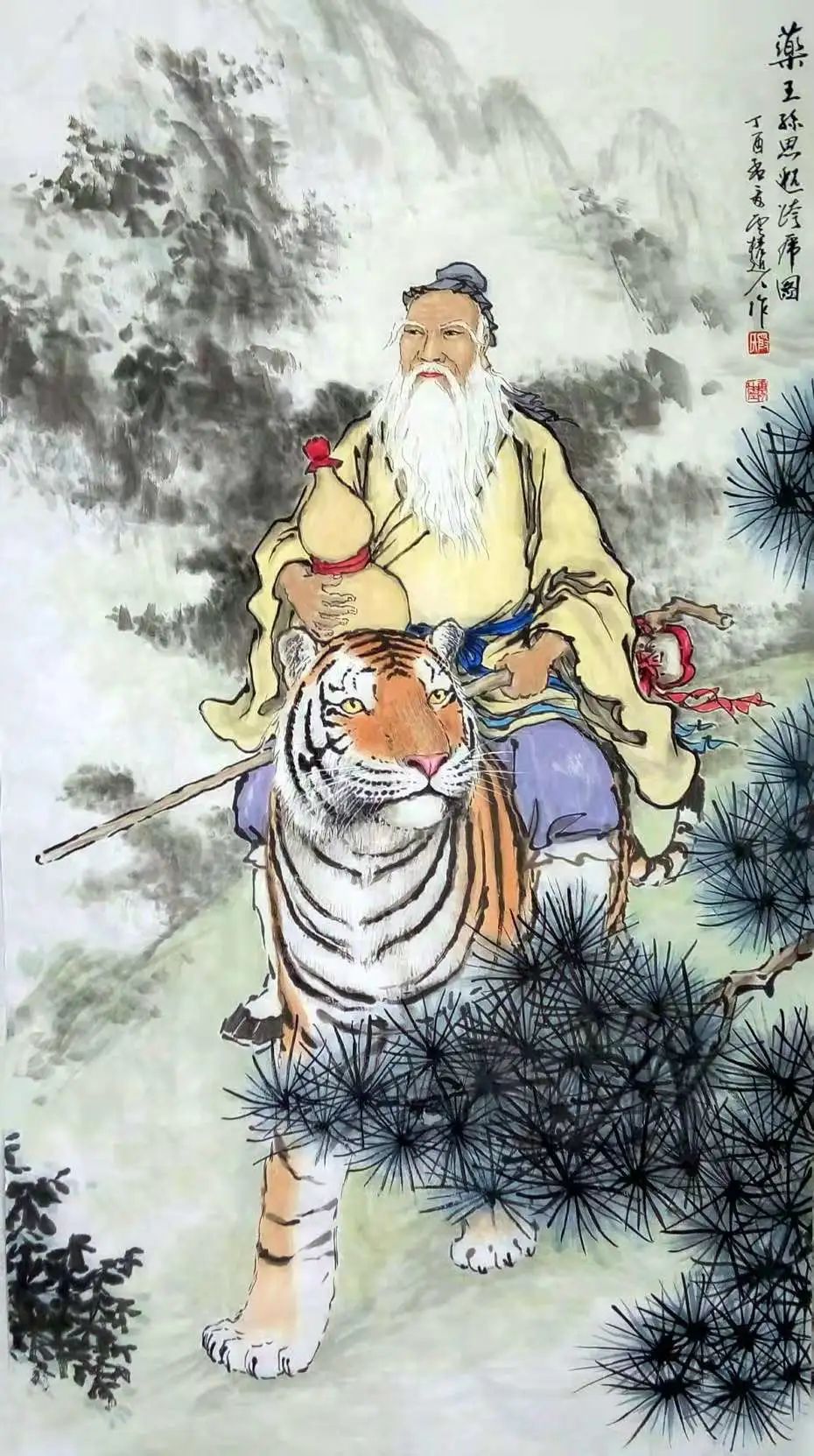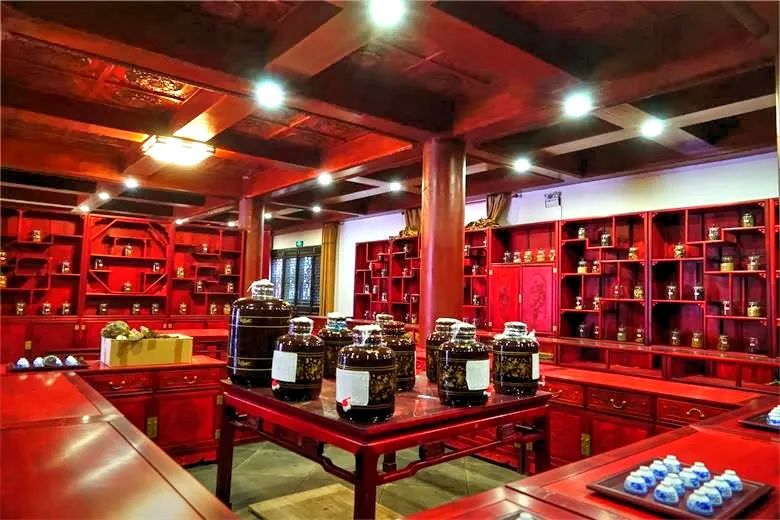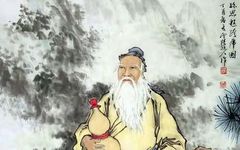Click “Follow” to learn more information

During some events, we often notice many friends with thinning hair, with men being more prevalent than women—this can be a serious blow for women who value their appearance. When I mention this, many might feel uncomfortable, as if their privacy has been exposed. In fact, thinning or balding hair is a warning sign from the body—indicating that one should pay attention to their lifestyle and health.
According to TCM, the gradual thinning of hair is generally related to declining kidney function. In this article, we will primarily introduce effective hair growth remedies compiled by the renowned herbalist Sun Simiao, with the intention of benefiting those who are interested. It is advised to strictly follow medical instructions regarding the usage. Remember! Remember!
Daoist Hair Growth Ointment Series
Formula One
San Sheng (麻子仁) 3 sheng, Qin Jiao (秦椒) 3 sheng. Combine the two, soak in rice wash overnight, and use for hair washing.
San Sheng generally refers to Huoma Ren (火麻仁), which is considered sweet and neutral in traditional medicine, entering the spleen, stomach, and large intestine meridians. It has the effect of moistening the intestines and relieving constipation, used for treating blood deficiency and fluid depletion.
Note: Not suitable for those with diarrhea. Due to the high oil content in Huoma Ren, it can moisten the intestines, which may worsen diarrhea.
Qin Jiao: It dispels wind and evil qi, warms the middle, alleviates cold and dampness, strengthens teeth and hair, and brightens the eyes. Long-term consumption can lighten the body, improve complexion, and enhance longevity. Qin Jiao is rich in vitamin C and various nutrients, and regular consumption can strengthen the stomach and increase appetite. It is known as the “King of Peppers”.
Formula Two
San Sheng (麻子) 2 sheng, Bai Tong Ye (白桐叶) a handful.
Boil the two ingredients in rice wash, strain, adjust temperature, and use for hair washing for twenty days.
San Sheng: Also known as Da Ma Zi (大麻子), it is recorded in the “Ben Cao Yan Yi Bu Yi” as having the ability to produce tangible substances, hence used for childbirth, placenta, residual bones, and pus blood. Its properties are sweet, spicy, neutral, and toxic. It has effects of reducing swelling, detoxifying, unblocking meridians, and promoting bowel movements.
Bai Tong Ye: Bai Tong Ye is an alternative name for the leaves of the Paulownia tree recorded in the “Shen Nong Ben Cao Jing”. Its properties are bitter and cold. It has effects of clearing heat, detoxifying, promoting urination, and reducing swelling. The “Ben Cao Gang Mu” states it can reduce swelling and promote hair growth.
Formula Three
Sang Bai Pi (桑白皮) 1 sheng, boiled in 1 sheng of water for three boils, then use for hair washing three times.
Sang Bai Pi is cold in nature, sweet in taste, and enters the lung and spleen meridians. It has the effects of draining lung heat, relieving cough, promoting urination, and reducing swelling. It is mainly used for treating lung heat cough, reduced urination, and facial swelling. Sang Bai Pi also has antihypertensive, anti-inflammatory, and anticancer effects.
Additionally, Sang Bai Pi can treat hair loss. When used, an appropriate amount of Sang Bai Pi can be boiled in water to wash the hair once a week, which not only treats hair loss but also helps remove dandruff.
Note: If used alone for hair washing, do not combine with other medicines or folk remedies; it can also be made into a hair conditioner.
Note:
①In ancient times, 1 ge (合) = 20 milliliters, and ten ge equals 1 sheng, which is 200 milliliters.
②Rice wash: refers to the water used for rinsing rice.
③1 sheng (读 shi, later read dan) = four jun = 29760 grams.
Contraindications: Sang Bai Pi is cold and has a strong descending effect, thus it is not recommended for patients with spleen and stomach deficiency or coldness. Sang Bai Pi also has a certain laxative effect, so patients with poor gastrointestinal function may experience mild abdominal pain or diarrhea.
Written by: Dao Hai Fu You | Reviewed by: Zhong Shi Zheng
References: “Qian Jin Yi Fang Volume Five: Women’s Section” p154
◎ Disclaimer: Some images and content above are sourced from the internet. If there is any infringement, please contact us for removal.
Previous Related Highlights
◎ Special gift for International Women’s Day: Helping mothers around the world nourish their beauty, dispel dampness, and strengthen the spleen for abundant blessings.
◎ What to do if a child swallows a foreign object? This method may help reduce the need for a “centipede-shaped” surgical scar.
◎ After the beginning of winter, how can middle-aged and elderly people prevent bronchitis, moisten the lungs, stop cough, and enhance immunity?
◎ After the winter solstice, many middle-aged and elderly people start to supplement, but they must first understand the difference between yin deficiency and yang deficiency.
◎ The spring equinox is a key time for women to nourish the liver, protect the liver, and prevent breast cancer; be sure to save this information.
◎ In winter, learn to make this tonic with your family: it can darken hair, nourish qi and blood, benefit the mind, and resist aging.
◎ Listen to Laozi talk about “the way of heaven” to understand the hearts of the world; why do sages treat all things as straw dogs?
◎ High-level explanations of what “evil qi” and yin energy are; there’s no need to be scared, with six methods to resolve them.
◎ The miraculous “Da Lao Er Wan”: It is said that long-term use can replenish essence, generate blood, nourish qi, and strengthen bones, making one look youthful.
◎ What did Laozi, Confucius, and Zhang Sanfeng reveal about the secrets of longevity? How to fundamentally extend one’s lifespan?
◎ This item is not only excellent for cancer prevention in middle-aged and elderly people but also enhances the vitality of young people; it is recommended for permanent collection.
◎ What tonic did the imperial physician prescribe to Emperor Taizong of Tang that led to him being honored as the “King of Medicine”?
◎ Why do some people with the same innate conditions have good luck and high achievements, while others are completely opposite? What is the mystery?
◎ Why was Emperor Qianlong the longest-lived emperor in history, and what health practices did he enjoy in his later years? What methods did he rely on?
◎ The eye care remedy left by the founder of Wudang Internal Martial Arts, Zhang Sanfeng: Tian Shi Ointment, specifically for treating cataracts!
Share and spread the good deeds.
Your sharing may be just what others need!
Editor’s Note
⊙Wudang Martial Arts, Sanfeng Tai Chi health learning and cloud travel consultation (year-round):Promotional Office: 13872795898 (Daoist blessings, inheritance classes, Tai Chi health)Fuqian Sanfeng Sect Friendship Association: 18932025052 (Tai Chi health, inheritance classes)Brother Wang: 18611779456 (volunteer, Tai Chi health, inheritance classes)Martial Arts Office: 0854-2220099 (inheritance classes, Tai Chi health)Resume for Daoist friends can be sent to: [email protected]
– The End –
Learning Martial Arts, Promoting Daoism Public Account
Health | Ancient Methods | Tranquility | Nature | Compassion
▼

 Scan to follow us WeChat ID: Wudang Sanfeng Sect Friendship Association Weibo: //weibo.com/qwdy2016
Scan to follow us WeChat ID: Wudang Sanfeng Sect Friendship Association Weibo: //weibo.com/qwdy2016

